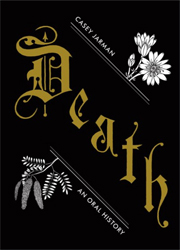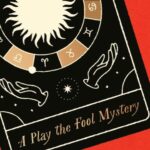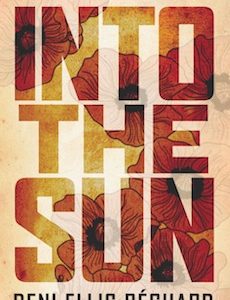My Journey to Activism and Black Lives Matter
Community Organizer Teressa Raiford on the Violence That Propelled Her Work
In the three hours I sat with Teressa Raiford, she had one visitor, two missed phone calls, and dozens of text and instant messages. Raiford is an activist and community organizer from Portland, Oregon, who is generally associated with the local Black Lives Matter movement. She’s a regular at city hall meetings and rallies held at the state capital in Salem (many of which she organizes). She has been criticized and even jailed for her activism, most recently in 2015 for disorderly conduct (a charge she fought and won). Despite a reputation as an antiestablishment agitator, Raiford has friends and allies across Portland’s political landscape. Upon meeting with her, I understood easily where the goodwill comes from. Before I could tell her that I don’t usually drink coffee, she set one in front of me and began to answer my questions about her tumultuous life story, without melodrama or pulled punches.
It quickly became clear to me that Raiford’s near-constant activism—she’s the cofounder and lead organizer behind Don’t Shoot PDX, an organization that protests police violence, among other issues—serves in part to keep her own grief at bay. Her work is a tribute to dead family members and friends, and it’s also a coping mechanism. She is relentless in confronting what she sees as institutional failures and the people who enable them—but the resulting battles can take a heavy emotional toll.
–Casey Jarman
TERESSA RAIFORD
When I was in my twenties, my grandmother died, and I had just gone through some severe domestic violence. My mom was throwing barbecue grills through my window because she was on crack. People in our community were dying left and right.
Then this boy got killed across the street from our house. My son had been talking about this dream he had about this black boy with this short afro and curly hair coming in to our house through the window. He said, “We were in the room making art, Mom, and this boy came in through my window and sat down and ripped up our paper and laughed at us and then kept on running out the back.” I was like, “What? That’s goofy.” But my sister was like, “No, Teressa, we have to listen to him.” I’m like, “We’re not gonna entertain the baby. We’re not gonna go back to all the stuff from when we were kids.” She thinks she has ESP, and I’m always thinking logically, like, “Oh, those are coping mechanisms, and she’s been watching too much In Search of . . . with Leonard Nimoy.” She wanted my son to describe what the little boy looked like. My son described everything, and my sister was tripping because she was like, “Yeah, that sounds like Michael.”
Next thing you know, not even 20 minutes later, one of my other cousins came in: “Y’all know so-and-so got killed last night? Somebody came into the house across the street. They was in there playing dominoes. Somebody opened the door, and they started shooting. When he heard the shooting, he jumped up and ran out the back door.” His back door would have been coming toward our house. It was this boy Michael. They said that he was running out the back door to get away from the shooting, and he got killed on the back step.
I was like, “I’m getting the fuck outta here because y’all think this stuff is normal, and I don’t think it’s normal, and I want my kids to have a better life.” Within six months, I was gone. I used my tax return and I took my kids. I wasn’t going to get beat up no more. We were not going through anymore of this. We were not going to think that gangs and drugs and all this stuff is normal. We were gonna go have a normal life away from all the weird stuff. When we got to Texas, it was like, it couldn’t have been any more normal.
* * * *
Black people don’t move out of one black community and go to another black community unless they know people in that neighborhood. They go to a community and live. So I moved to Texas, and the communities we lived in were beautiful. My kids went to Anne Frank School, and then when we moved up a little bit more, they were going to Barbara Bush. [Laughs.] And Tom Landry and Valley Ranch. It was a totally different world, like, “If you want to work, then you can have a job, and if you’re good at that job, then we’ll move you up.” It didn’t matter if you had college degrees and a good family and all that stuff. It wasn’t political. It was based on your abilities.
I bought a house within a few years. We bought land and built a house. I didn’t have Section 8, food stamps, welfare, nothing from the time we got there. I started out as a stock person for Nordstrom. Then I ended up working and doing purchase orders for the buyer. Then I went straight to Bank of America in a sales support position. Someone recommended the job, and I said, “Shoot, what they gonna have me do? I’m cleaning the toilets?” I’m an introvert. I’m scared of people. But they were like, “Just go for it.”
I go into the interview—no college education, nothing—just a mom of two. I’m 26 years old. I’m in the interview at this big old oak table in Dallas, Texas. I don’t understand how I’m sitting here with these people who are like, “I got a master’s in finance!” I’m like, Who told me to come here? But my resume was on some beautiful paper, and it had all the stuff that I had actually done on it. I had been a file clerk in Portland, then a client services manager. They knew, and they hired six of us out of the 12 who interviewed. I was in that department for five months, and a job came up for the manager over a bigger department. I was managing 24 people, and I hadn’t even been at Bank of America for six months.
* * * *
My Uncle Denny was getting out of jail. I think he did 27 years or something. Everybody was like, “You know, you gotta be home because Uncle Denny’s coming home. His parents are dead. He went in when he was 19. The whole city is different. We need people here who he can recognize, who know him, who can help reintroduce him and just be home.” I was coming home for what I thought would be a couple of weeks, nothing longer than that.
When I came back, immediately it was death again—death, death, death. It threw me for a loop. Not only was I not around poverty at all in Texas, but when you’re not around poverty, and you’re not around people who you love, you’re not usually around the pain and hurt of violence and death. That goes for anybody of any color. The violence still happens when we’re not around, but you know more about it when you’re around it.
At the same time my daughter was like, “I want to check out some art schools out there.” When we came in on the plane to Portland to visit, they were talking about some bomb threats at the airport. Then everybody was talking about how it was summertime and how violence was up, and I was like, “What? Violence in Portland?” I’m like, look at all this pretty shit. Are you kidding me? Being gone for 15 years, you’re not seeing what everybody was talking about with the gang violence and all that. I’m looking at brand-new buildings, beautiful streets, nice houses. Everything looks good to me.
Not long after I got back, the Methodist church—along with all these other community members—was being called to come to Multnomah County to talk about community violence and what could be done. “We’re gonna get everybody together, and let’s have a rally and talk about it.” They had this group that I guess was in line to get a 60 thousand dollar grant from Multnomah County.
At the public hearing, I was like,“I’m from this community, and if you guys really have a community violence issue, and you’re talking about buying diapers for gang members and doing a talent show and some of the goofy shit that I just heard here—none of that’s actually going to work.” If they’re actually in a gang, that has to mean that there’s some racketeering involved, which means that there has to be money involved, which means that they probably don’t need your money for diapers. If they’re not making money and you just think that poor kids are gangs, let’s go ahead and dismantle that, and let’s do it with some job opportunities. These kids don’t know that lawyers work for Nike. They don’t know that architects, graphic designers, and good writers work for Nike. They don’t know that there are all these industries within that industry because no one has introduced it to them. Let’s do that with your power. Give them an out.
They were like, “Yay, let’s do that. Let’s create a steering committee. If we create a steering committee, would you be willing to be a part of it?” I was like, “Uh, yeah!”
I stayed for so many damn meetings that I was getting frustrated. I’m sitting here arguing with these broads over, you know, “What are you guys gonna do to apply an effort toward resolving these problems right now rather than giving it to another system and forgetting about it and feeling like you did something?” They started saying that I was vindictive because I was in foster care, that I didn’t want things to work. I couldn’t take it. I walked out of that meeting that afternoon. I told them to do what they were going to do. I needed to take my ass and spend time with my family. I walked away, and it was a beautiful day.
Then the next day, no sun even came up. My nephew was dead. Before my uncle even got out on his date, my nephew was dead. He got out the same day as my nephew’s funeral. That’s what’s so jacked up. I’m like, damn. I came home to see my uncle who went to jail when he was 19, and I came home and my nephew who’s the same age as my uncle died. It’s like, you don’t get a life no matter what happens. You could die or go to jail, and you still end up nowhere.
I remember that night when we were at the hospital. My brother had called us up, saying, “Come up here, something happened with Andre.” I was like, No, this is crazy, no way. That was just my second time seeing my brother the whole time I had been in Portland. My brother just looked at me and said, “Teressa, what are you doing here?” I was like, “Mondo, I don’t know. How in the hell would I just happen to be at home during some stuff like this?” I said, “Last time I came home, grandma died. I don’t know if it’s just the universe allowing me to be here with you, but I’m not going nowhere.” And I haven’t.
* * * *
I don’t think that I knew what activism was. We had always done food drives, different kinds of volunteering, and I never knew that that was activism. When I was in Dallas, I sat on a lot of different boards and committees for different organizations, like Habitat for Humanity. But I didn’t know it was activism.
When my nephew died, people were like, “We’re not going to save all of them.” And I was thinking, Woah, I’m not leaving. I’m gonna throw myself into this, and we really need to do something.
Every time someone would say something to me about how messed up the system was, I would say, “Well, how can you continue to work for it?” They’d say, “Well, because I gotta retire next year, and I’m working on this, and you can only do what you’re doing.” I was researching, investigating, and working as a business development manager. Every single day since my nephew died, that’s what I’ve been working on. I’m doing business development for the community of Portland. [Laughs.] That’s why we call our activism a community action plan. It’s like, if the community starts having this discussion, regardless of what level of community they are at—if there’s people who are willing to work, then there’s stuff that can actually be done.
Anybody who calls me, I’m there for them. I’ve had victims call me. I’ve had police hit me up, giving me their cards and asking me to get them subpoenaed. Everybody calls me for all kinds of shit, and I just do the work. I’m just like, “Okay, environmentalism. I don’t know anything about that, but send me over some information, and I’ll call my people that do that, and we’ll go ahead and build a campaign that gets people involved. I’ll find out if we can advocate.” To me it’s just advocacy.
* * * *
I’m just now dealing with the trauma and death. I’m not dealing with it in a good way. The activism and the protesting, I think that’s helping me. That’s like therapy or something, right? I’ve gone through all this shit, and I’ve never talked to a psychiatrist or a counselor or a therapist or anybody about nothing. I just kept going because I was like, I’m the oldest and I got my kids. I always had an excuse for not dealing with taking care of myself. Everybody’s like, “Teressa, you gotta take care of yourself,” and “Why don’t you take care of yourself?”
This is the first time I’ve ever lived by myself in my life. I had my son, and then I had my daughter, and we always had our community. Me and my friends always lived with each other. This is the first time that I’ve ever had in my life to be by myself. I wouldn’t keep moving, but the people who support me, the community—I have a GoFundMe account, that’s how I pay my rent. If the kids call me and I gotta make a hundred dollars off of speaking at a college, I’ll do that. I haven’t been able to stop. I need to stop. They want me to stop. They’re like, “Teressa, just stop and deal with your pain. Deal with your hurt, just live, just breathe and be a person because you deserve it now. You done did it.” But I feel guilty about everything, so I don’t stop. I won’t take a break, and I won’t take care of myself. That’s shameful. It’s like, dang, I do think that I’m a person worth saving. You know what I’m saying?
At some point you gotta think that people who are in a lot of pain, especially people in hospice, they get to a point where they’re like, “Okay, I gave you guys enough of my time, now I’m tired and I’m gonna go.” I’m there now, but I’m still alive, so I don’t know how to get past being there and not wanting to continue. You don’t know what else is going to happen. The pain of living seems to be worse than death. Resting in peace sounds all right.
I don’t cope with it. This is why you got people who go crazy or have emotional issues, and I’m having them, but I don’t know how to deal with them. I drink coffee, I stay in the house, I look outside. I’m scared to go take walks. Because now with police investigating you and assaulting you, and your lawyer saying, “Hey, you’re not paranoid. They really are investigating you, you might not be safe”—that shit don’t make none of this easier. I’m like, How’d I go from trying to be active for my nephew to wondering if my safety is an issue?
You got racist people who want to kill you because you’re saying “black lives matter,” and then you got people who think that you’re bad because you have an issue with police brutality. I’ve got police officers who are friends. I got police officers who have had to stand off with me who are also telling people in the community how much they love me. They help install security systems at my church so that the ninety-year-olds in our congregation can be safe. I got the mayor of Portland, every time he sees me, he tries to hug me. I’m like, “Don’t you be hugging me in front of people, Charlie. They gonna think we get along.”
I’m a normal human being. I’m just somebody who wants to help make things better for us, but I don’t even know how to make things better for myself. You do what you can, right?
* * * *
The thing that got me about Michael Brown’s death in Ferguson was when his mom said that he didn’t think he was going to live, anyway. She said she was always trying to get on him about going to school and doing his homework and graduating and all that. And he didn’t really think he was gonna have a life. He kept saying things like, “It don’t make no sense because they gonna kill me, anyway.” I hear kids say that all the time, like, “I ain’t never gonna make it, anyway. I ain’t gonna never be nobody.”
I was like, damn. People don’t know how much our kids are worth, and they don’t care. But his friends knew. When you would see those images on the news about what was happening in Ferguson, those were kids. On Twitter and Facebook, they were like, “Meet me at my grandma’s house.” You would see kids talking about getting batteries and keeping their cameras going and getting water. What I remember about Ferguson is that when the police put a curfew in place, the kids went on boycott. They stayed outside, and they were building tents and camps. This was for days. They were streaming what they were doing outside, and they were organizing. They were ordering food and connecting online and communicating with people. They’s kids! Everybody’s connecting communities to give them resources to stay outside. It lasted months. Every time something happened, they had the communication line. It was going through the buzz. Kansas City might’ve just sent water one time, but now Kansas City is a buzzline. If somebody tweets in Ferguson, it’s gonna tweet in St. Louis and tweet in Chicago. Beautiful. That’s what made it go: The kids were pushing it and everybody else couldn’t ignore it because they were calling for help.
* * * *
I had already been doing Trayvon Martin rallies, and I had been doing community town halls at Portland Community Media. I had been doing a lot of community outreach that didn’t nobody want me to do. My family didn’t want me to do it, the community didn’t want me to do it, the people that I call the gatekeepers didn’t want me to do it. I ran for office. To me, running for office was radical because I had to Google, “What is a city commissioner?”
I only ran for office so I could do community advocacy. I thought, If people know that I’m a community leader, then they’ll call me if they need stuff.
That’s what I would use the platform for. The whole time, everything that I said I would do if I was elected was the stuff I was actually doing while I was not elected.
You don’t get paid for activism. You lose your teeth, you lose your hair, you lose your home. You can’t have friends because everybody has something to lose if they’re around you, and they have to defend you. It ain’t cool. I could probably have a great, beautiful life, but I don’t even know what that is. When I lived in Dallas and I was building my house, I bought the marble for my floor and I paid for whatever the kids wanted. Everything was beautiful. We were making it, but we still wasn’t happy.
The shit that I’m doing every day now, that kinda works. Being with students and helping them figure out what they want to do with their life, that makes it better. I tell them that when our friends die, it’s like, “How do we seed that back into where we need it?” I feel like I’m seeding. Like, okay, let me go ahead and give some things because I know a lot of dead people that didn’t get an opportunity. I loved them a whole lot. When you have that capacity, you can give more. So you try.

From Death: An Oral History. Used with permission of Zest Books. Copyright © 2016 by Casey Jarman.




















